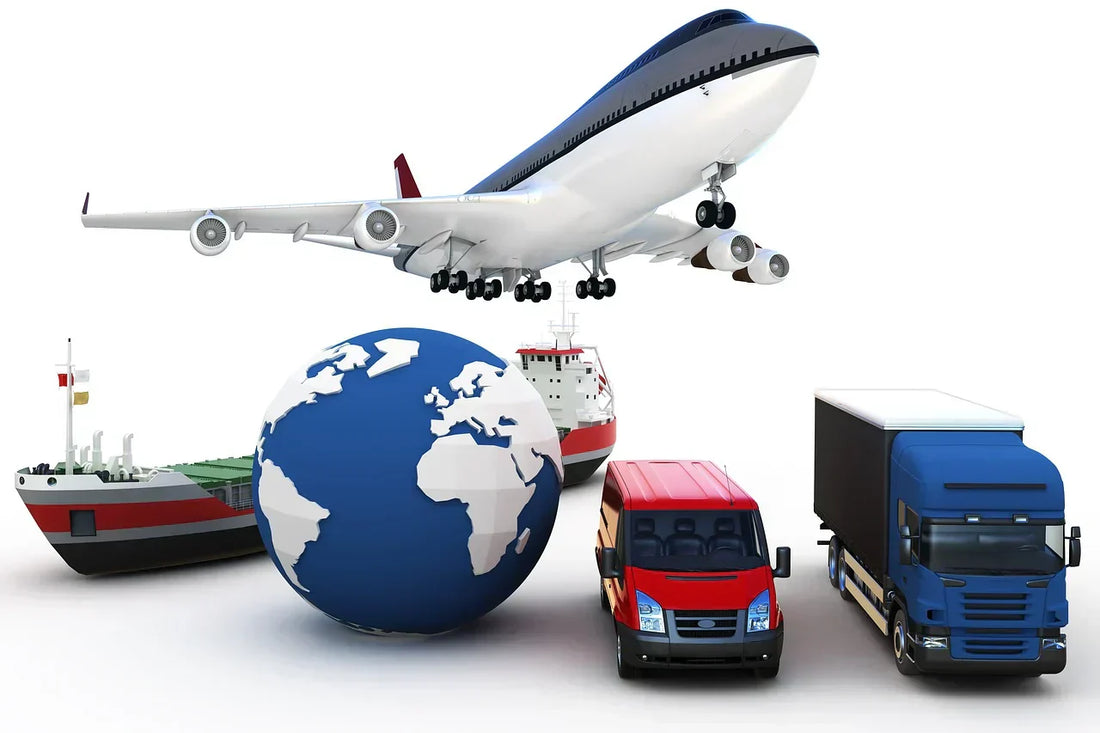
ERP in Logistics & Transportation: Driving Smarter, Faster, and Leaner Supply Chains
Keywords: ERP for logistics, transportation ERP software, fleet management ERP, warehouse ERP system, logistics automation
Introduction: The Backbone of Modern Movement
Whether you're delivering e-commerce orders, managing a fleet of trucks, or running multi-warehouse logistics operations timing, visibility, and precision are everything.
In logistics and transportation, Enterprise Resource Planning (ERP) is the digital nerve center that integrates routing, warehouse operations, fleet performance, and customer fulfillment into a single system.
As logistics becomes faster, leaner, and more tech-driven, ERP is no longer a back-office tool, it’s the key to real-time decisions, predictive supply chains, and consistent customer delivery.
Why ERP Is Essential in Logistics & Transportation
The industry faces intense pressure to deliver on time, at lower cost, and with full visibility. ERP systems bring order to this chaos by synchronizing the movement of goods, people, and information across every node in the network.
✅ Fleet & Route Optimization
Track vehicle locations, assign drivers, manage fuel consumption, and dynamically update routes based on traffic, weather, or delivery urgency.
✅ Warehouse Management Integration
Automate put-away, picking, packing, and shipping across multiple warehouses—ensuring inventory accuracy and reducing fulfillment delays.
✅ Order-to-Cash Fulfillment
Connect order management with logistics execution, billing, and customer notifications for full visibility and faster delivery cycles.
✅ Real-Time Inventory & Shipment Tracking
Monitor inventory levels, transit status, and delivery KPIs from a centralized dashboard—improving planning, reducing errors, and cutting costs.
Core ERP Features for Logistics Providers
- Transportation Management System (TMS) integration
- Warehouse Management System (WMS) modules
- Real-time fleet tracking and GPS integration
- Driver scheduling and route planning
- Fuel usage and maintenance tracking
- Freight cost calculation and invoice reconciliation
- Dock scheduling and yard management
- EDI for carrier, vendor, and 3PL communication
- Customer order portals and delivery visibility
- Reverse logistics and return processing workflows
Logistics ERP Trends to Watch
IoT-Enabled Fleet Monitoring
Connected ERP systems integrate with telematics, dashcams, and IoT sensors to track vehicle health, driver behavior, and cargo conditions in real time.
Cloud-Based Global Logistics
Cloud ERP enables global logistics providers to synchronize cross-border shipments, customs compliance, and warehouse performance on a unified platform.
E-Commerce Fulfillment Integration
ERP solutions are now deeply integrated with e-commerce platforms, last-mile delivery networks, and order tracking systems, improving the consumer delivery experience.
AI for Route Planning & Demand Forecasting
Modern ERP platforms use AI to predict order volume, optimize delivery routes, and auto-adjust warehouse staffing and stock levels.
Real-World ERP in Logistics & Transport
-
3PL providers use ERP to automate client-specific workflows, billing, and SLA tracking.
-
Freight carriers manage driver hours, vehicle maintenance, and route compliance.
-
Retail logistics teams integrate ERP with POS and inventory systems for better demand-driven delivery.
- Cold chain operators track temperature and product condition with ERP-connected IoT data.
Why ERP = Speed, Savings, and Service in Logistics
ERP enables logistics and transportation providers to:
- Improve delivery speed and reduce route costs
- Track every asset and shipment from origin to delivery
- Eliminate paper-based tracking and manual reconciliation
- Offer customers live shipment updates and portal access
- Forecast demand and optimize warehouse throughput
“ERP turns logistics from reactive firefighting into proactive orchestration.”
Ready to streamline your logistics operation?
→ Join The Community
Final Thought
In an industry where seconds count and margins are thin, ERP provides the real-time coordination, forecasting, and operational control that modern logistics demands.
Whether you're managing a regional delivery fleet or global freight lanes, ERP helps you move smarter not just faster.
